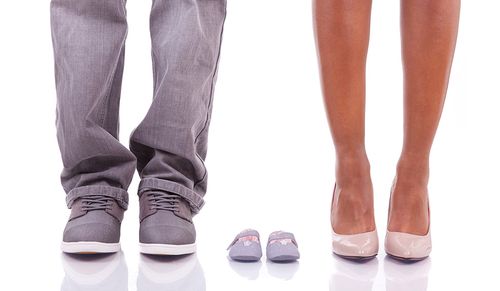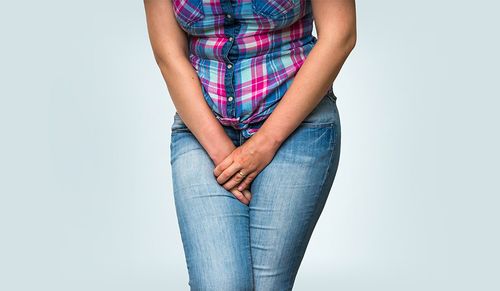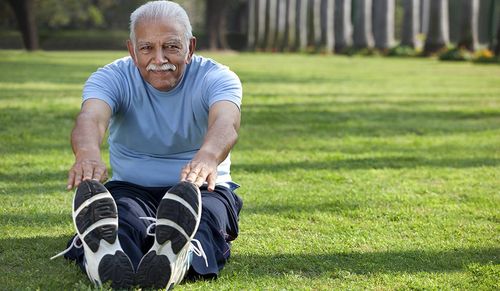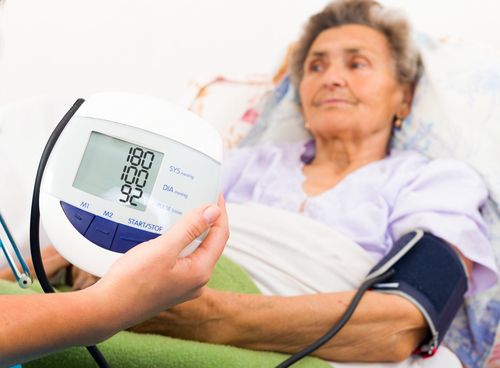Do you engage in brain training games to stay mentally sharp? You may be wasting your time.
A systematic review of 132 scientific studies on brain games published in the journal Psychological Science in the Public Interest could not find any evidence that these products can actually improve cognitive skills and ward off mental decline.
While such games will help master the specific task that one is practising, it does not provide any broader cognitive benefits or improve one's daily cognitive performance.
The idea behind brain training is 'transfer-of-training', meaning if one practices a task that focuses on an area of cognitive ability like memory, it will help one do well on tasks that rely on memory, not just while playing the game, but also in the real world.
"If you practice remembering playing cards, you'll get really good at remembering playing cards. But does that help you remember which medications to take, and when? Does it help you remember your friends' names? Historically, there is not much evidence that practising one task improves different tasks in other contexts, even if they seem to rely on the same ability," the lead researcher noted.
"Based on our extensive review of the literature cited by brain-training companies in support of their claims, coupled with our review of related brain-training literatures that are not currently associated with a company or product, there does not yet appear to be sufficient evidence to justify the claim that brain training is an effective tool for enhancing real-world cognition," the study concluded.
Trackers don’t help
Fitness trackers like Fitbit are the new rage. But according to researchers, at the Duke NUS Medical School in Singapore, fitness trackers hardly improve fitness levels and have little impact on overall health.
For the study in the journal The Lancet Diabetes & Endocrinology, 800 adults, ages 21 through 65, were randomly assigned to one of four groups: one group had to wear a Fitbit every day and were promised a cash incentive if they met weekly step goals; the second group got the Fitbit and the cash incentive, but had to donate it to a charity of their choice; the third group got the Fitbit but no incentive; and the control group got neither Fitbit, nor money.
At six months, only the group offered cash incentives actually improved their activity levels. However, at the end of six months, when the cash incentives were stopped, they fared worse than the other groups.
Forty per cent of those in the charity group and the trackers-only group had stopped wearing their trackers at six months. By 12 months, 90 per cent of the participants had stopped wearing Fitbit.
“We found no evidence that the device promoted weight loss or improved blood pressure or cardiorespiratory fitness, either with or without financial incentives," the lead researcher noted.

Passing it on
Men conceived through infertility treatments are more likely to have poor sperm quantity and quality than those conceived naturally, Belgian researchers report in the journal Human Reproduction. This can increase their risk of fertility problems.
The study included 54 men conceived through intracytoplasmic sperm injection (ICSI) from 1992 to 1996, when the technique was only used to treat male infertility. They were matched with men of similar age who had been conceived naturally.
In ICSI, the father’s sperm is injected directly into the mother’s egg in the laboratory, and then the fertilised egg is placed in her womb. The procedure allows fertility experts to choose the best quality sperm and ensure it fertilises the egg.
The men, who are currently between 18 to 22 years old, had about half the sperm concentration and a two-fold lower total sperm count and total count of motile sperm compared to men conceived naturally.
In addition, ICSI men were nearly three times more likely to have sperm concentrations below 15 million per millilitre, which is the WHO’s definition of normal and four times more likely to have total sperm counts below 39 million.
“These first results from the oldest group of ICSI-conceived adults worldwide indicate that a degree of 'sub-fertility' has, indeed, been passed on to sons of fathers who underwent ICSI because of impaired semen characteristics,” said Prof Van Steirteghem, who pioneered the ICSI technique and is also the lead researcher of this study.

Leak shot
For women suffering from urinary incontinence, Botox injections may be a viable option.
In a US study published in The Journal of the American Medical Association, Botox injections worked slightly better than a surgically implanted device to help women with very severe incontinence for whom medications or other therapies did not work.
Some degree of bladder incontinence affects between 25 and 45 per cent of all women.
The reaserchers randomly assigned 381 women, average age 63, who did not respond to other therapies, to either an injection of Botox in the bladder muscle or InterStim, an implanted bladder control device. The participants were followed for six months.
The study found that 46 per cent of women in the Botox group and 26 per cent in the implant group had at least a 75 per cent reduction in the number of episodes of urgency incontinence. Women in the Botox group reported a greater reduction in worrisome symptoms and better treatment satisfaction.
Both had some side effects. Women given Botox had a greater risk of urinary tract infections. Three per cent of women with the implant had to have it removed or reinserted.
Did You Know
Children who have experienced parental absence, through death or separation, before the age of 7 are more than twice likely to have started smoking and 46 per cent more likely to have started consuming alcohol by age 11.
Archives of Disease in Childhood

Healthy long life
Older adults who follow a healthy lifestyle can enjoy a healthier old age and more disability-free years.
As we live longer, the possibility of spending the last few years disabled also increases. "This study shows that a longer life was also a better life in those with healthy lifestyles," the lead study author noted.
For the study in the Journal of the American Geriatrics Society, the researchers analysed data from 5,888 men and women aged 65 and older. None of the participants were disabled and they lived independently at the onset.
The participants’ lifestyle factors, including smoking habits, alcohol consumption, physical activity, diet, weight and their social support system were regularly assessed for 25 years.
About 90 per cent of the participants died over the study period.
The average number of disabled years directly preceding death, when a person had difficulty eating, bathing, using a bathroom, getting dressed, getting out of bed or a chair, or walking around the home, averaged 4.5 years for women and 2.9 years for men.
But a healthy lifestyle mattered. Overall, those with the healthiest lifestyle not only lived longer, but had fewer years of disability. They could expect to live about 1.7 fewer years disabled. They could expect to live about 80 per cent of their remaining years disability-free. But only 55 to 60 per cent of their remaining years were disability-free for those with the least healthy habits.
“This clearly demonstrates the great value of investing in the promotion of a healthy lifestyle and encouraging people to maintain healthy behaviours into old age.”

Burdened daughters
Gender inequality often begins at home. According to a UNICEF report, girls between ages 5 and 14 years spend 40 per cent more time on household chores such as cooking, cleaning, caring for family members and collecting water and firewood than boys their age. This translates to 160 million more hours a day worldwide.
Girls between the ages of 10 and 14 in South Asia, the Middle East and North Africa spend twice as much time on household chores than boys. Chores such as collecting firewood and water also puts them at risk of sexual violence.
Even though they carry a disproportionate burden, it is often “less visible and undervalued”. It limits their potential and can have a lasting impact on their self-esteem. Spending more time on chores means less time for studying, playing, having fun with friends and enjoying their childhood.
“The overburden of unpaid household work begins in early childhood and intensifies as girls reach adolescence. As a result, girls sacrifice important opportunities to learn, grow, and just enjoy their childhood. This unequal distribution of labour among children also perpetuates gender stereotypes and the double-burden on women and girls across generations,” Anju Malhotra, UNICEF’s principal gender adviser, noted.
Did You Know
Human lifespan may have reached its maximum limit: the average maximum human lifespan is 115 years, and the absolute limit of human lifespan may be 125 years.
Nature

Rage risk
Intense anger or heavy physical exertion can each trigger a heart attack, and the risk is greatest when you engage in heavy exertion while emotionally upset.
For the study in the journal Circulation, Canadian researchers analysed data from 12,461 first-time heart attack patients, average age 58, across 52 countries.
Participants were asked if they were emotionally upset or engaged in acute physical activity in the hour before their heart attack, or during the same hour the day before.
Both heavy physical exertion and intense emotions doubled the risk of suffering a heart attack in the next hour. That risk almost tripled when people were angry or emotionally upset while also engaging in heavy physical exertion.
The elevated risk remained even after accounting for other risk factors, including age, smoking, obesity and high blood pressure and was similar in all regions of the world, in both men and women, and across all age groups.
According to the study author, extreme emotional and physical triggers can have similar effects on the body.
“Both can raise blood pressure and heart rate, changing the flow of blood through blood vessels and reducing blood supply to the heart. This is particularly important in blood vessels already narrowed by plaque, which could block the flow of blood leading to a heart attack.”
“Regular physical activity has many health benefits, including the prevention of heart disease, so we want that to continue. However, we would recommend that a person who is angry or upset who wants to exercise to blow off steam not go beyond their normal routine to extremes of activity.”

Drop in memory
Frequent drop in blood pressure when suddenly standing, a condition known as orthostatic hypotension, can increase the risk of dementia, including Alzheimer's disease, according to a study published in PLOS Medicine.
Orthostatic hypotension, which can trigger dizzy spells, can cause brief episodes of reduced blood flow to the brain. Earlier studies have shown that reduced blood flow to the brain (transient cerebral hypoperfusion) can contribute to brain dysfunction in the elderly.
“Brief episodes of hypoperfusion, elicited by sudden blood pressure drops, may lead to hypoxia [lack of oxygen] with detrimental effects on brain tissue," the study authors commented.
The study was based on 6,204 Dutch men and women without dementia with an average age of 68.5; 1,152 participants had orthostatic hypotension at baseline.
During an average follow-up of 15.3 years, 1,176 people developed dementia, including Alzheimer's disease and vascular dementia. Having orthostatic hypotension was associated with a 15 per cent increased risk in dementia of all types.
Automated insulin delivery
The US Food and Drug Administration has approved Medtronic’s MiniMed 670G hybrid closed loop system, the first automated insulin delivery system for people with type 1 diabetes.
"This first-of-its-kind technology can provide people with type 1 diabetes greater freedom to live their lives without having to consistently and manually monitor baseline glucose levels and administer insulin," said the director of the FDA's Center for Devices and Radiological Health.
The system consists of a sensor that measures glucose levels under the skin; an insulin pump strapped to the body; and an infusion patch with a catheter that delivers insulin.
The device monitors blood sugar levels every five minutes and automatically provides insulin if needed, freeing patients from having to check blood sugar levels throughout the day and administering insulin based on the readings.
The approval was based on the findings of a clinical trial that included 123 participants with type 1 diabetes. The device is approved for use in people 14 years of age and older with type 1 diabetes. No serious adverse events were reported.
Did You Know
One in three breast cancer cases could be prevented by maintaining a healthy weight, exercising regularly and avoiding alcohol.
American Institute for Cancer Research

Her bane
Women have better verbal memory than men and this may be a disadvantage for early diagnosis of Alzheimer’s.
"Women perform better than men on tests of verbal memory throughout life, which may give them a buffer of protection against losing their verbal memory skills in the precursor stages of Alzheimer's disease, known as mild cognitive impairment. This is especially important because verbal memory tests are used to diagnose people with Alzheimer's disease and mild cognitive impairment, so women may not be diagnosed until they are further along in the disease," the lead researcher noted.
The study published in Neurology involved 1,316 people with an average age of 73 years; 254 of them had Alzheimer's disease, 672 had mild cognitive impairment with memory problems and 390 had no thinking or memory problems.
All the participants took verbal memory tests where they were given 15 words and then had to recall them immediately and 30 minutes later.
PET brain scans were taken to see how well the brain metabolised glucose, the brain's primary energy source. Reduced glucose metabolism in the brain is often a sign of dysfunction in brain cells.
Women did better on the memory tests than men even when their scans showed similar problems metabolising sugar.
"These results suggest that women are better able to compensate for underlying changes in the brain with their 'cognitive reserve' until the disease reaches a more advanced stage. If these results are confirmed, adjusting memory tests to account for the differences between men and women may help diagnose Alzheimer's disease earlier in women."
Did You Know
Practising mindfulness meditation can help control your negative emotions.
Frontiers in Human Neuroscience
Game-changer drug
An immunotherapy drug called nivolumab could be a real ‘game changer’ for patients with head and neck cancer that is resistant to chemotherapy or has relapsed or spread. There are currently no treatment options for such patients and they are not expected to live more than six months.
The findings of an international phase III clinical trial published in the New England Journal of Medicine has found that more than twice as many patients taking nivolumab were alive after one year compared to patients treated with chemotherapy. The immunotherapy drug also had fewer side effects than chemotherapy.
Of the 361 patients with relapsed or metastatic head and neck cancer in the trial, 240 received nivolumab and 121 received one of three different chemotherapies. One year later, 36 per cent of patients treated with nivolumab were still alive compared with 16.6 per cent treated with chemotherapy.
Median survival for patients on nivolumab was 7.5 months, compared with 5.1 months for chemotherapy.
The survival benefit was greatest for patients tested positive for human papillomavirus (HPV). These patients survived an average of 9.1 months with nivolumab and 4.4 months with chemotherapy.
More significantly, serious side-effects were considerably lower with nivolumab than with chemotherapy—35 per cent vs 13 per cent.
Patients on nivolumab remained stable throughout the treatment, while those on chemotherapy reported feeling physically, socially and emotionally worse. “Nivolumab could be a real game-changer for patients with advanced head and neck cancer. This trial found that it can greatly extend life among a group of patients who have no existing treatment options, without worsening quality of life. It's great news that these results indicate we now have a new treatment that can significantly extend life, and I’m keen to see it enter the clinic as soon as possible,” said the lead researcher.
Contributor: SHYLA JOVITHA ABRAHAM






